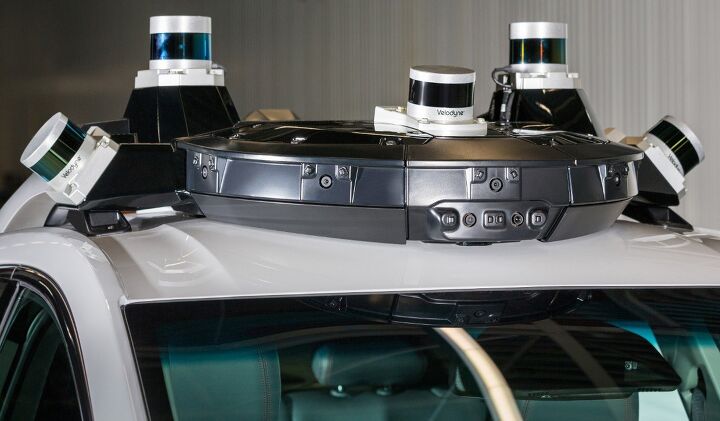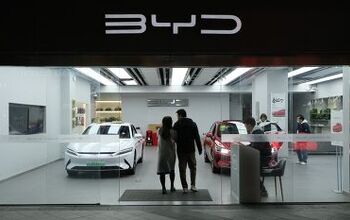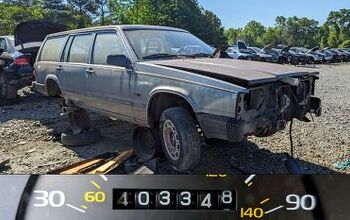GM's First Self-driving Car May Keep Manual Controls

This time last year, we were under the impression that General Motors’ first attempt at an autonomous vehicle would come without pedals, a steering wheel, or any other controls traditionally associated with driving. Cruise Automation, the GM subsidiary tasked with developing the vehicle, seemed confident it could deliver something that didn’t need to rely on human intervention to be truly safe. This promise was reiterated by GM in January of 2018 via a request to produce the car sans controls though federal exemption.
U.S. laws governing what constitutes a safe automobile were written before autonomous vehicles entered development, creating problems. It wasn’t evident to anyone that GM could legally manufacture a vehicle that lacked traditional controls, as existing laws stipulated that all automobiles had to have them. While the Department of Transportation has proven rather lenient on policing AVs in terms of testing, rewriting the Federal Motor Vehicle Safety Standards or providing exemptions was a bridge too far — especially when self-driving tech is new, frequently misunderstood, and backed heavily by corporate interests. The existing guidelines remain unchanged and new legislation pertaining to self-driving vehicles has stalled in Congress.
Apparently sick of waiting, General Motors now appears satisfied to just build AVs with manual controls.
While the message didn’t come through official channels, Automotive News reports that at least one top GM executive has confirmed the most likely scenario involves launching the Cruise AV using older tech that incorporates a steering wheel and pedal controls.
“Until we have exemptions, which we filed a petition for, and/or law changes, we probably wouldn’t go forward with Gen 4,” Doug Parks, GM vice president of autonomous and electric vehicle programs, said Thursday during the 2019 RBC Capital Markets Future of Mobility Conference in Palo Alto, CA. “But we think it’s really something we’ve got to talk about, we’ve got to work on.”
The automaker is currently testing the third generation of its autonomous vehicles, mostly in and around Cruise Automations’ home base in San Francisco. While there have been some developmental hangups, Cruise and GM have managed, thus far, to avoid the type of negative publicity surrounding several of its rivals. It’s seen as a frontrunner in the race for vehicular autonomy. Last we heard, GM expects to launch its autonomous fleet before the end of 2019 as part of a taxi service that sounds similar to the pilot programs introduced by Waymo.
GM has not revised this timeline, possibly because it could put investments at risk. But it does appear willing to launch with traditional controls. “When we’re ready to deploy, we’ll most likely deploy with the Gen 3 technology,” Parks said, adding that Gen 3 vehicles would meet existing safety standards and are already production-ready.
The most plausible reason for this change is the government’s inability to adapt automotive safety laws for autonomous vehicles in a timeline that suits General Motors and its investors. However, not rushing into a decision that would help establish the regulatory framework for an entire subset of vehicles that could very well change everything we know about transportation isn’t the worst idea in history. The alternative scenario is that GM’s self-driving systems aren’t as highly evolved as previously claimed and the company is using this as a clever smoke screen.
Despite being over a year old, the exemption is still pending. The Department of Transportation issued a request for public comment on GM’s petition for a waiver in March of this year, with the National Highway Traffic Safety Administration saying it would “consider all comments in order to keep public safety a priority while also fostering innovation.” If granted, the waiver would allow General Motors to launch as many as 2,500 Cruise AVs per year as driverless taxis operated entirely via touch screens.
[Images: General Motors]

A staunch consumer advocate tracking industry trends and regulation. Before joining TTAC, Matt spent a decade working for marketing and research firms based in NYC. Clients included several of the world’s largest automakers, global tire brands, and aftermarket part suppliers. Dissatisfied with the corporate world and resentful of having to wear suits everyday, he pivoted to writing about cars. Since then, that man has become an ardent supporter of the right-to-repair movement, been interviewed on the auto industry by national radio broadcasts, driven more rental cars than anyone ever should, participated in amateur rallying events, and received the requisite minimum training as sanctioned by the SCCA. Handy with a wrench, Matt grew up surrounded by Detroit auto workers and managed to get a pizza delivery job before he was legally eligible. He later found himself driving box trucks through Manhattan, guaranteeing future sympathy for actual truckers. He continues to conduct research pertaining to the automotive sector as an independent contractor and has since moved back to his native Michigan, closer to where the cars are born. A contrarian, Matt claims to prefer understeer — stating that front and all-wheel drive vehicles cater best to his driving style.
More by Matt Posky
Latest Car Reviews
Read moreLatest Product Reviews
Read moreRecent Comments
- Sam Jacobs I want a sedan. When a buy a car or even rent one, I don’t want to ride up high. I don’t want a 5-door. I want a trunk to keep my stuff out of sight. It’s quieter, cars handle better, I don’t need to be at the same height as a truck. I have a 2022 Subaru Legacy Touring XT, best car ever, equipped as a luxury sedan, so quick and quiet. I don’t understand automakers’ decisions to take away sedans or simply stop updating them — giving up the competition. The Camry and Accord should not be our only choices. Impala and Fusion were beautiful when they were axed.
- Spamvw I think you need to remember WHY the big 2 and 1/2 got out of the car business. Without going political, the CAFE standards signed into law meant unless you had a higher gas mileage fleet, you couldn't meet the standards.The Irony is that, the law made sedans so small with low roof lines, that normal people migrated to SUV's and Trucks. Now we get worse mileage than before.
- TheEndlessEnigma Somehow, Toyota, Honda, Hyundai/Kia and Mazda are able to build sedans in North America AND turn a profit on those sedans at the same time.
- Tane94 There definitely is demand for sedans and history will condemn Ford, GM and Stellantis for abandoning the segment. Hyundai/Kia/Genesis and Honda, Toyota, Nissan continue to invest in their sedans and redesign the models.
- 3-On-The-Tree its a simple questIon. As an educated “ADULT” I don't resort to name calling which is very childish. If a question is asked and the response is name calling that just means the argument has no basis or truth. I know because I used to teach critical thinking which is severely lacking today.




































Comments
Join the conversation
Who in their right mind is going to buy something like this?
The lawyers are waiting like hungry junkyard dogs.